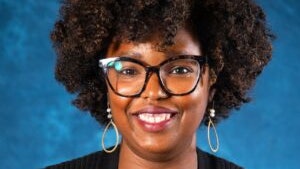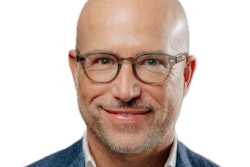The consequences of climate change worldwide are not borne equally across all communities as communities of color most often bear the brunt of these environmental challenges, according to a new report from the United Negro College Fund (UNCF).
 Alexandria McBride
Alexandria McBride
“Collaboration between HBCUs and local grassroots partners brings a sharper focus to climate challenges and solutions, and clears pathways for community-led climate innovation,” said Alexandria McBride, senior program officer, Waverley Street Foundation.
The UNCF report, supported through an investment by the Waverley Street Foundation, is a survey of 20 HBCUs representing a mix of public and private institutions in urban, suburban, and rural settings across 11 states and territories. It uses an eight-part framework to develop a foundational understanding of current climate and sustainability practices at HBCUs.
"For HBCUs, addressing the climate challenge is about creating a future where our communities can flourish, prosper, and continue to contribute to the rich tapestry of human progress,” said UNCF President and CEO Dr. Michael L. Lomax. “HBCUs are positioned to lead the nation and world in a just transition to a greener and more equitable future for all.”
 Dr. Michael L. Lomax
Dr. Michael L. Lomax
The report identifies six key findings to guide activation of HBCUs in climate change and sustainability: 1.) HBCU foundational sustainability and climate action activities represent untapped assets, 2.) HBCU leadership is uniquely equipped to pioneer sustainability efforts in their communities, 3.) addressing the stark funding gap is critical to the global sustainability and environmental justice movement, 4.) HBCUs’ embrace of renewable energy positions them as trailblazers in community-focused clean energy solutions, 5.) HBCUs are molding the next generation of environmental leaders, and 6.) HBCUs are prepared to drive transformative environmental justice and climate action for marginalized communities.
“HBCUs are extraordinary at helping their communities prepare for the next generation, so it is natural that they have embraced the cause of climate change and environmental justice,” said Dr. Kendra Sharp, strategist, UNCF Institute for Capacity Building, UNCF. “With additional supports, HBCUs can transform the environmental realities of their communities while preparing the next leaders of the green economy.”
UNCF survey participants included: Bennett College, Bowie State University, Clark Atlanta University, Dillard University, Florida Agricultural and Mechanical University, Huston Tillotson University, Jackson State University, Jarvis Christian University, Lane College, Morehouse College, Rust College, Savannah State University, Shaw University, Spelman College, Stillman College, Talladega College, Tennessee State University, Voorhees University, Xavier University of Louisiana, and University of the Virgin Islands.
UNCF plans to highlight the role of HBCUs in climate action, sustainability, and environmental justice during its annual convening, UNITE 2024: UNCF Summit on Black Higher Education, July 28 to Aug. 1, in Atlanta. HBCUs and other climate leaders Interested in speaking at UNITE may visit the UNITE website to submit a proposal. Applications are due March 31.















